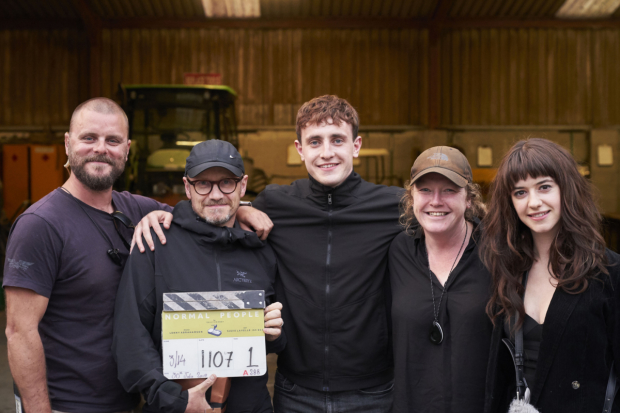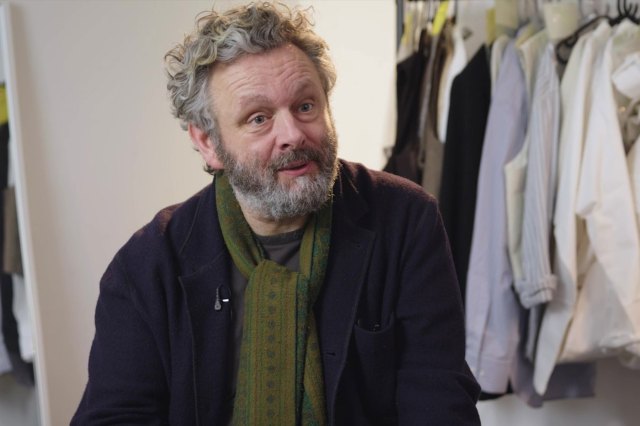Playwrights have produced top tier TV during covid-19 lockdowns – theatres have to survive to usher in talent
Without stages across the UK, we might not have had the biggest TV highlights of the last month

© BBC/Element Pictures/Hulu/Enda Bowe
Sally Rooney's award-winning novel about an on-off couple is masterfully, agonisingly replicated in an irresistibly binge-able 12-part series – you can watch the full thing now on BBC iPlayer. It's penned by the author herself alongside Alice Birch and Mark O'Rowe, with direction by Hettie Macdonald and Lenny Abrahamson.
There's a lot of stage talent in that team. Brit Birch joined the Royal Court Theatre's young writers program at the age of 18, her first full-length play Many Moons had its world premiere at Theatre503 in 2011, picking up a Susan Smith Blackburn Award nomination in the process. Irish playwright O'Rowe's background is similar – his George Devine Award-winning Howie the Rookie premiered at the Bush Theatre in 1999, four years before his first feature film.
McDonald, for her part, trained at the Royal Court and was an associate director at the Wolsey Theatre, Ipswich (worth noting she also directed one of the best Doctor Who episodes in its recent history – "Blink" with Carey Mulligan).

© BBC/Element Pictures/Hulu/Enda Bowe
The pattern continues. Just after Easter it was Quiz, a three-part national sensation based on the Who Wants to be A Millionaire? scandal that playwright James Graham steered from stage to screen with great success.
Graham's script, excellent performances from Matthew Macfadyen, Sian Clifford, Michael Jibson, and, of course, Michael Sheen's uncanny Tarrant, were a complete tonic for the Covid blues. In a gesture of goodwill, Graham donated his fee to help freelancers in need.
The Mansfield-raised writer cut his teeth at the Finborough Theatre in west London, his career was later propelled into the mainstream with shows at the likes of the Bush, Theatr Clwyd and the Soho. Quiz was originally commissioned by Chichester Festival Theatre (it was a rocking fit in the venue's Minerva auditorium) and a refreshing novelty in the West End, well before it was trending on a nightly basis while the Ingrams' guilt was mulled over.
All of the theatres above, vital stepping stones in Graham's career, have warned of the long-term impacts of lockdown. If costs have to be saved then there's a chance that commissioning may be scaled back or stopped completely.
TV has long relied on smash-hit theatre to thrive and, in turn, a playwright's success on screen shines a light on their stage origins. Want to find the next Phoebe Waller-Bridge? It's likely they'll be performing in a dripping disused vault at the Edinburgh Fringe.
It keeps coming – Nicôle Lecky's brilliant Superhoe is headed for the BBC after a storming opening run at the Royal Court (after being developed with The Yard and Talawa Theatre). Lecky's career has been helped along by the likes of the Lyric Theatre, the Soho and Tamasha. Central grad Vinay Patel, who is now a regular Who writer and responsible for Murdered by My Father, made waves alongside new writing company HighTide with his True Brits at the Fringe in 2014. Mischief Theatre had north London audiences roaring with laughter at the Old Red Lion or the Pleasance long before they were doing the same on the BBC.
Waller-Bridge has supported hundreds of freelance artists by releasing Fleabag for charity, while Killing Eve, for which she is now executive producer after bringing it to life in 2018, is in the middle of its third season. It would be no surprise if the multi-award-winner Jasmine Lee-Jones ended up wowing screen audiences in the next few years.
Theatre has played an instrumental part in ushering in form-shifting, epoch-defining TV. Writers begin their careers in venues whose livelihoods are in a constant state of uncertainty, regardless of quarantines. It's a sad reality that many now won't be able to survive without generous support – the loss of Italia Conti's Juniors is a sign of what might be coming.
Playwrights deprived of opportunities in 2020 have to have them to come back to in 2021. If you can, donate to grassroots venues and companies. Shout about your favourite new writers online. Buy their plays and find some escapism in powerful new voices. Voices that will only flourish if institutions have the means to support them.












